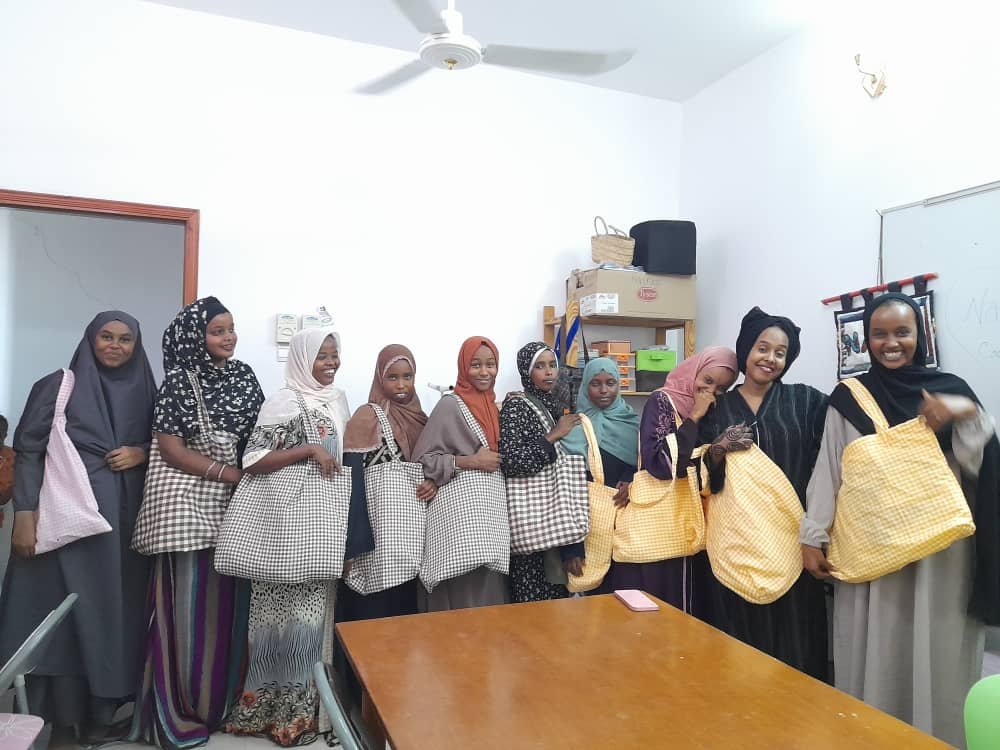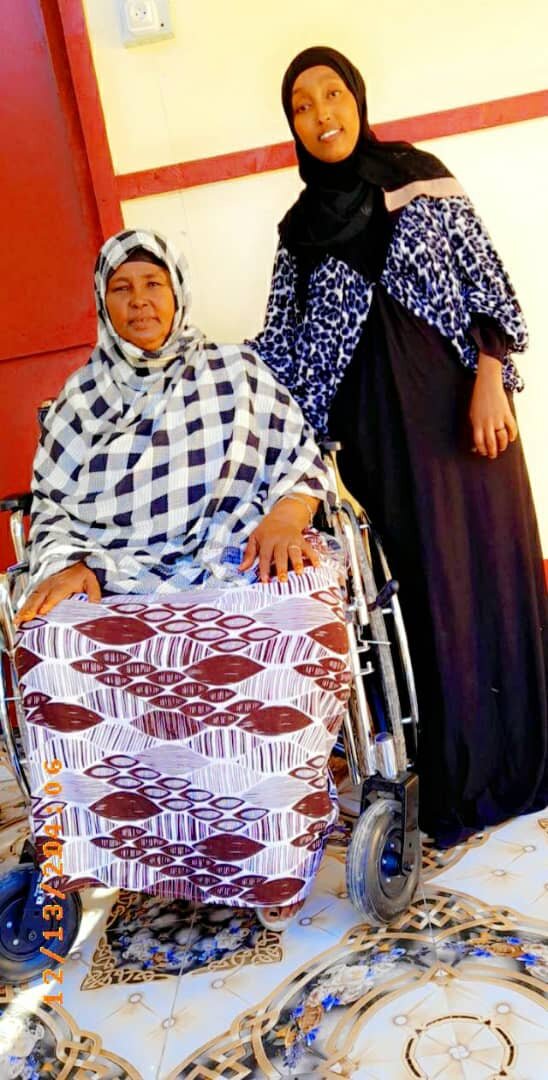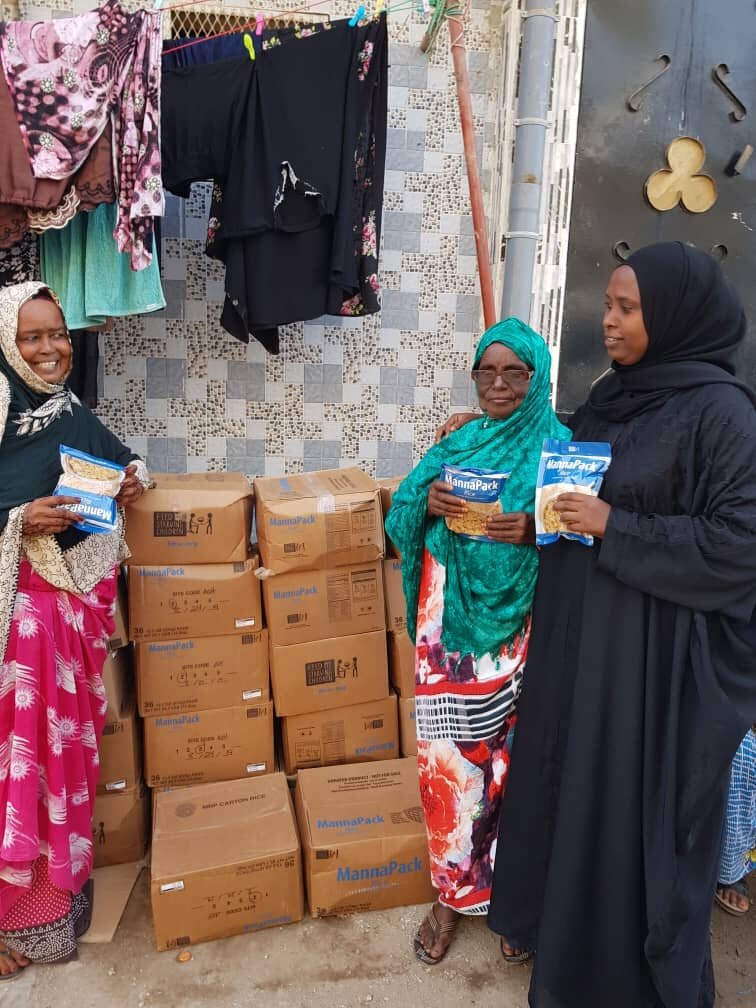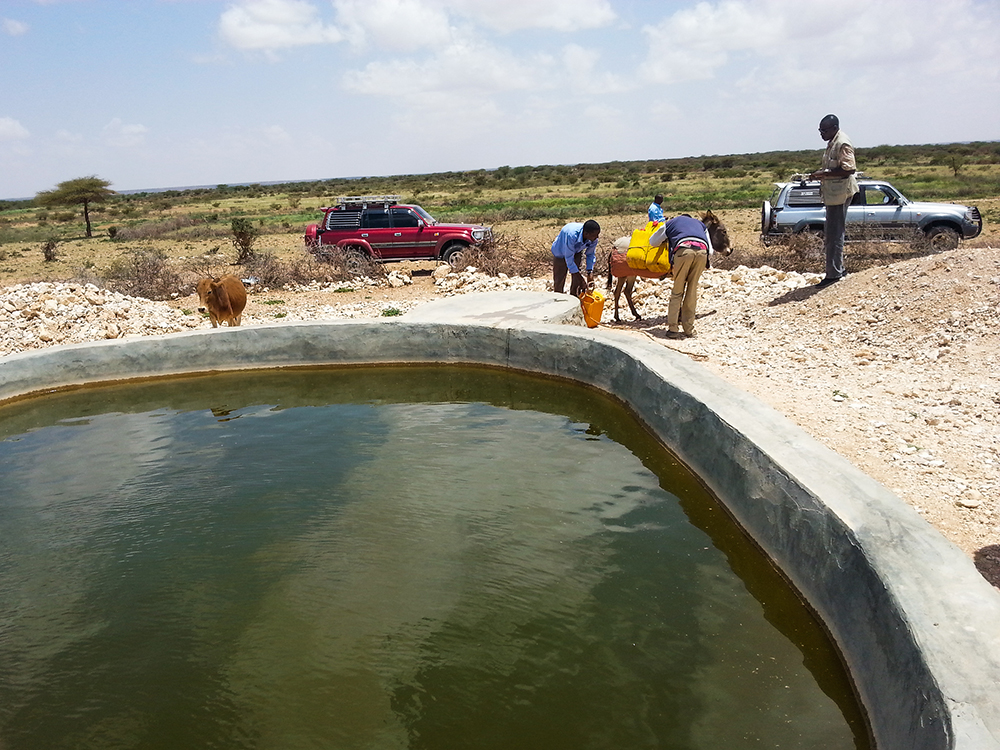
News
Latest Updates
Stay up to date with all the amazing work of L.I.F.E
More stories from L.I.F.E
Distribution of Supplies to IDP Camps in Puntland
In consultation with the Ministries of Education, Health and Youth and Sports, most the current consignment is planned be dispatched to a location that has been suffering from drought. This area is often neglected because of its remoteness as well as its disputed land. This has caused brief and politically intense conflicts, which have been both deadly and devastating.
“The reoccurrence of clan and political conflicts, periphery, prolonged droughts and population growth, as result of natural growth with limited resources has led poor condition to the people. According to the UN and INGOs reports, most of the people are living in significantly difficult circumstance. School enrolment rate is low comparing other towns and due to the absence of adequate teaching materials, facilities and skilled teachers. Although the town has several private clinics, the general hospital, which is the only public hospital in that area, is not equipped as needed.” – Staff who works and lives in country
In response to those circumstances, the aid was intended to benefit an estimated 700 students of different age groups two orphanage centers and schools, and for each student to receive a CarePack.
Also, each student received rice packs that would last each of them two months. We also gave one orphanage center 3 boxes of soccer balls, and the the other 5 boxes were turned over to the Ministry of Labour, Youth and Sports (MoLYS) and distributed throughout the region.
Other donations included 20 boxes of blankets that were donated to the same students as well as people in the neighborhood. Other items of the supplies included wheelchairs, mobility carts and mixed mobility supplies which benefited over 180 disabled people in two towns.
Nearly 273 of the drought-affected people in these towns and their families benefited from the used clothing and blankets. The other donations included nearly 5000 items of disposable medical supplies that went to health facilities in the same districts.
Planning the distribution of supplies with local authorities
Prior to the arrival of the supplies, the local NGO consulted with the Ministries of Education and Health and Youth and Sports in planning the distribution of the donated items. They agreed to undertake a joint distribution of items. The Ministries also advised to target the new supplies to the orphanage center and 6 schools, 2 community health centers in one town, and the general hospital and other 4 health clinics in the surrounding settlements. After the identification of the beneficiaries and distribution plan was agreed, the transport and the delivery of the supplies to the targeted schools/centers was conducted.
Distribution and supply delivery to the targeted centers
The supplies were disturbed at an orphanage center and the community health centers by a team composed of the local community, local authority, and field staff as per the agreed distribution plan. A launching event was held at the main orphanage center where representatives from the regional education ministries, religious scholars, and our NGO as well as other guests attended. The Mayor of the town officially launched the distribution handing out supplies to the orphanage. After 5 days of work, the team went to another town and distributed supplies to those families affected by drought living in IDP camps.
Beneficiaries were also able to express their appreciation towards the relief distribution stating that this was a much needed but unexpected humanitarian act. Particularly, the orphaned children who appreciated the distributed supplies. Also, the administration and teachers of the schools and health centers were very thankful. They said the bringing the supplies to the orphan center was very thoughtful and the children were indeed worthy and deserved to get these highly nutritious supplies.
Fartuun is a 47 year old single mother who has been greatly affected by the drought. She lost all of her animals in the drought and has migrated to the nearest city in hopes of finding a better place to live. She received used clothes, rice bags, and blankets.
“We were caught by surprise at just how quickly this drought has returned. The time for people to recover has been halved and has been continuing to decrease every single season,” she said. “Ultimately, it’s a climate crisis, but we are very grateful for this quick response/aid especially blankets, rice, and used clothes since I will be able to dress decently.”
The rice and beans she received will ensure that the herself and the kids can fight malnutrition.
Hassan is a 45-year-old man who is crippled and has been using his hands while dragging his body along the ground in order to move. He was given a Pet Cart and was overjoyed that he no longer had to crawl on the dirty, dusty roads. “There is no other day I’m happier than today and I’m grateful for the mobility cart you provided me in order to move.”
Eight year old Howa is an orphan and is a student at the orphanage school. She lives with her aunt is very old, but supports her in her life and encourages her to get an education. She received soccer balls and CarePacks and was so happy along with her other classmates to receive new items for school. “Me and my classmates are very grateful and morally happy.” She said.
Water Catchment Systems in Somaliland
Water Catchment systems are undergo in Somaliland. Thank you to everyone who played a part in this project!
LIFE works with Local Village to Build Berkad
A Berkad is a traditional rainwater catchment system. LIFE has worked with various villages in Somalia to build berkads. Recently they built one outside of Hargeisa. A local doctor is part of the community that collects the water, treats it, and then uses it in his hospital. Many villages have asked for help to build berkads because they receive adequate rainfall and it helps store and collect the water for future use. Below are some photos from the final project.
LIFE Helps Build Wells in Somalia
We have been working with partners on the ground in Somalia to dig for wells in rural communities. Many of the people living in the areas are returning from refugee camps such as Dadaab.
In the Farhan Camp there are 137 families and many of them have helped take part in digging the well. Yahye, the chairman of the camp, thanked us for helping bring clean water to their village. He said, “My happiness can’t conclude here, but I would like to thank you for this well. It is useful for many people living in this camp and we wish for more.”
Farhan Camp
Farhan Camp
In Khalid Camp there are over 91 families, and many of them also helped dig the well. Hilawle, the governor of the camp, said he was happy for this opportunity. I am pleased for this program and the water is necessary for life. We all think we will be ok when the water is ok, and I will wish for another aids like this foundation.”
Khalid Camp
Khalid Camp
Ahmed Receives Wheelchair, Dignity Restored!
Ahmed has been crippled for 15 years. He did not have a wheelchair so he would crawl on the ground in order to get around or he had to depend on someone else to take him places. Ahmed is 45 years old and received a wheelchair for the first time. He also received a special-made toilet. Our partners said that by giving Ahmed a wheelchair and toilet tailored to his needs that we were giving him the opportunity to a dignified life.
Somali Nursing Students Distribution Nutritious Rice in Somaliland
The nursing students from the Amoud Health Science faculty conduct family visits in the community. This semester they have been going to an area where people have returned to live after being in Ethiopia. During the war they fled from Somaliland to Ethiopia and now they have come back. In this specific area are the poorest of the poor.
In the initial visit from the nursing students they took a family health assessment where they assessed the nutritional status (MUAC assessment tool) of the children under five. In this specific area they found that some of the families who had children were malnourished or in danger of malnutrition. Some of the families could not provide three meals a day for their children. The students brought nutritious rice packages to give out to the families.
In Borma there is an orphanage with about 90 children between the of 3 and 16. The students went there to talk about health education and spend time with the children. They delivered also delivered one box of nutritious rice for the children.
Somaliland Distribution
Gargarra is a village in North West Somaliland, that has begun to pursue agricultural development. They have fields outside the village, and have begun growing a variety of crops. The Minister of Agriculture asked LIFE to aid Gargarra in preventing flooding in their fields. When the rain comes it goes directly into their fields and destroys the crops, and then heads straight to the ocean. This means that they are unable to conserve the water, and their crops are destroyed. We at LIFE, in coordination with the Minister of Agriculture, decided to give them 80 gabions, and aid them in the installation process. The gabions will divert the flow of water into their irrigation canals, allowing them to save the crops, and conserve water. Water is a commodity in these regions of Somaliland, and so anything done to preserve it is well worth it.
Distribution:
On August 10th 2014, in coordination with the Ministry of Agriculture, LIFE supplied 80 gabions to the village of Gargarra. In order for the workers installing the gabions to be paid, we brought two tons (145 boxes) of rice as well, and used it as Food for Work. As an added kindness LIFE also supplied them with one hundred pairs of Tom’s shoes, which were distributed mainly amongst the children.
The Minister of Agriculture went on this trip as well, because he believed it to be extremely important. Agricultural development is a slow growing sector in the Somaliland economy, and fields getting destroyed by rain would severely hamper its growth. That being said, we at LIFE were very happy to supply gabions to Gargarra, being as it is a project that will have long term implications.
Inside an IDP Camp: Clothing
The Mohamed Mooge internally displaced people (IDP) camp situated just
outside of Hargeisa, Somaliland is made up of two main camps consisting of 1971
families in total.
The Mohamed Mooge internally displaced people (IDP) camp situated just
outside of Hargeisa, Somaliland is made up of two main camps consisting of 1971
families in total. These are people who have fled their homes and settled here due to
drought and insecurity in recent years. Many of the inhabitants of the camp are from
the South and Central parts of Somalia. Due to heavy rainfall around the Hargeisa
area this year, the United Nations (UN) and International Non-Governmental
Organization (INGO) community was made aware of the IDP’s need for shelter
material via the Ministry of Resettlements, Rehabilitations, and Reconstructions (M
of RRR).
After receiving a letter requesting the aid of the UN and INGO’s from the M of
RRR to help with shelter materials, those present at a Non-Food Item (NFI) and
Shelter cluster meeting created a list of materials that could be distributed to the
IDP camp. Most organizations were able to put together for distribution NFI kits.
However, we at LIFE had children’s sweaters and Nike sports shoes. We decided
that something was better than nothing and agreed to distribute these things
alongside the NFI kits of the other organizations.
On the 11th of April, several organizations including LIFE gathered at a home
for street children near the Mohamed Mooge camp where the distribution would
take place. That day we distributed 1117 children’s sweaters and most of the 1971
pairs of shoes, of which we had allotted one pair per family. About 100 of the
sweaters were given to the children at the street children’s home. Unfortunately due
to security problems we were not able to complete the distribution of materials to
all 1971 families on that day, but we did return a week later on the 18th to complete
the distribution.





Tent Distribution in Dijbouti
Khorasho and Hawa came to visit to say thank you for the 100 boxes of fortified rice and 50 tents given to their settlement outside of Djibouti town.
Khorasho and Hawa came to visit to say thank you for the 100 boxes of fortified rice and 50 tents given to their settlement outside of Djibouti town.
Khorasho is married but has no children. Hawa is married and has 4 children. When her oldest daughter died giving birth, along with the baby, her second daughter went crazy and has to be chained up to their hut so she does not wander off. This is a common practice among the mentally unstable in Africa. Left with no alternative, tying up children is also common when the mom cannot watch her toddlers every minute.
Khorasho’s husband is unemployed and her two remaining children, 7 and 8 years old, do not go to school. Khorasho has no concept of numbers or age, which is unusual among Somalis because even the illiterate can count and often measure their age by seasons and droughts. She said she was around 30 and her mother 120!
Hawa grew up as an orphan in neighboring Somaliland and is also uneducated. Being illiterate is not uncommon, but these women represent a growing number of IDPs (Internally Displaced Peoples) and refugees who have lost all identity with their culture and oral education in general, which the Somalis are rich in. One can meet a poor Somali who still has some cultural dignity and knowledge and dreams. These poor women seem to have lost all hope.
Tents and Blankets
The flash flood surprised everyone after 4 years of drought, filling the wadi
(seasonal river bed) and overflowing into IDP (Internaly Displaced People)
makeshift homes.
The flash flood surprised everyone after 4 years of drought, filling the wadi
(seasonal river bed) and overflowing into IDP (Internaly Displaced People)
makeshift homes. The following are pictures of the distribution of tents and blankets
to the victims of the flood.
We were able to help 80 families with tents and blankets. We were assisted by the Djibouti military camp personal. Most of these victims are not long term residents of Djibouti, but have come into the city to look for work/food due to the loss of livestock in the bush, due to drought. It is ironic that they were victims to a flood.
One lady, a single mom with 4 little children, locked her children in the little hut while she ran out to the market to look for food (this is a common practice). The flood came so quickly that by the time she returned home, her youngest, a toddler, had drown but the other 3 survived the rising water in their little makeshift house.
Another woman was crying, not to be consoled by anyone. She had her children, but could not find her husband. Several people were rescued by helicopter out of the raging water. Most of the people who were affected were IDP (Internally Displaced People).

Join the story
Discover how L.I.F.E empowers communities to create lasting change, restoring dignity and inspiring people to build hopeful, thriving futures.







































